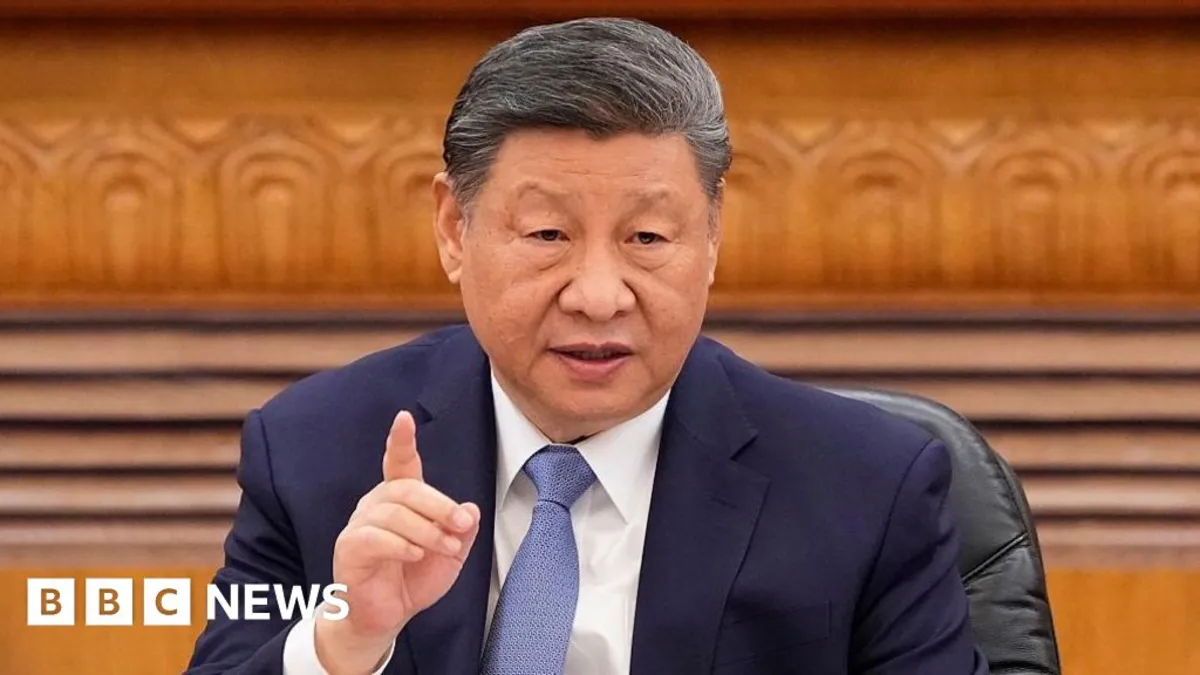
In a recent development, China has expressed strong concerns regarding the United States' actions, claiming that the U.S. has significantly violated their trade truce. According to the Ministry of Commerce in China, Washington has undermined the agreement that was reached during talks in Geneva last month, where both nations agreed to lower tariffs on goods imported from each other.
A spokesperson for the Chinese government stated that the U.S. actions have not only violated the trade agreement but also the consensus reached during a crucial phone call in January between Chinese leader Xi Jinping and U.S. President Donald Trump. This statement comes after President Trump accused China of “totally violating” the agreement, although he did not provide specific details regarding his claims.
Further insights from Trade Representative Jamieson Greer revealed that China has failed to remove non-tariff barriers as stipulated in the deal. Under the trade truce established in May during the Geneva meeting, the U.S. had reduced tariffs on Chinese goods from 145% to 30%, while China's retaliatory tariffs on U.S. products decreased from 125% to 10%.
In response to the U.S. actions, Beijing has pointed out specific violations of the agreement. These include the halting of sales of computer chip design software to Chinese companies, issuing warnings against the use of chips manufactured by the Chinese tech giant Huawei, and the cancellation of visas for Chinese students. These developments have raised concerns about the stability of the trade truce and the challenges that lie ahead in reaching a long-term trade deal.
The surprise agreement reached in Geneva had initially led analysts to believe that despite the apparent distance between the two sides on various trade issues, productive face-to-face talks could yield results. However, the recent escalation in rhetoric highlights the fragile nature of the current trade truce and raises questions about the potential for a sustainable resolution.
Despite the ongoing tensions, two senior White House officials indicated that President Trump and President Xi may engage in discussions soon. Treasury Secretary Bessent stated during an interview with CBS News, the BBC's U.S. news partner, that the specifics of the trade situation would be addressed once the two leaders converse, although no timeline was given for this expected dialogue.
Furthermore, National Economic Council Director Kevin Hassett mentioned in an ABC News interview that both leaders are anticipated to talk within the week, and both sides have shown a willingness to engage in negotiations. “The bottom line is that we've got to be ready in case things don't happen the way we want,” Hassett remarked, emphasizing the uncertain nature of the talks.
In a separate but related development, last week President Trump announced plans to double tariffs on steel and aluminium from 25% to 50%, effective Wednesday. Speaking at a rally in Pittsburgh, Pennsylvania, Trump stated that this increase would bolster the local steel industry and enhance national supply while reducing reliance on China.
As the situation evolves, trade relations between the U.S. and China remain precarious, with both sides navigating a complex landscape of negotiations, tariffs, and geopolitical interests.